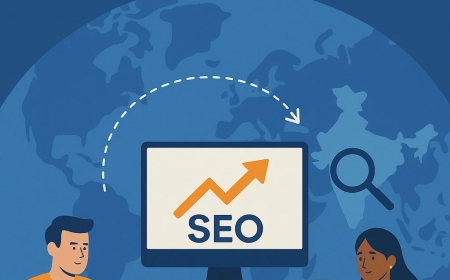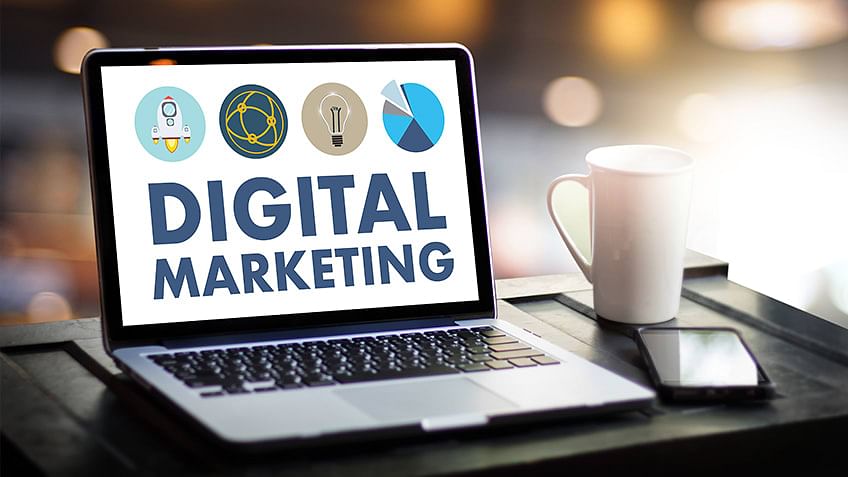A Complete Guide to Healthcare Software Development Services in 2025
Discover a complete guide to healthcare software development services in 2025 — key features, benefits, compliance, and how they boost patient care.

The healthcare industry is undergoing a massive digital transformation, and in 2025, the demand for smarter, faster, and more reliable healthcare software is higher than ever. Hospitals, clinics, labs, insurance companies, and even individual doctors are looking for customized digital solutions to streamline their operations, improve patient outcomes, and stay competitive.
Healthcare software development services have become the backbone of this transformation. They help healthcare providers build tools and systems that manage everything from patient data and billing to telemedicine and diagnostics. This guide is designed to give you a clear picture of what healthcare software development is all about in 2025what services are available, what trends are emerging, what challenges exist, and how businesses can benefit.
What is Healthcare Software Development?
Healthcare software development is the process of designing, creating, and maintaining software systems tailored specifically for the medical and healthcare industry. These systems can serve a wide range of purposes including patient management, medical billing, appointment scheduling, electronic health records (EHR), diagnostics, remote consultations, and more.
The goal is to make healthcare services more accessible, efficient, and accurate, both for medical professionals and patients. Software development in this space requires strict attention to data security, compliance, and user experience.
Types of Healthcare Software Solutions
1. Electronic Health Record (EHR) Systems
EHR software allows healthcare providers to store and manage patient information digitally. It includes patient history, medications, lab results, allergies, and more. EHRs replace paper records and make it easier for doctors to access and update patient data in real time.
2. Telemedicine Applications
Telemedicine has become a major part of healthcare, especially post-COVID. These apps allow patients to consult doctors remotely using video or audio calls. Telemedicine platforms also include chat features, prescription management, and appointment scheduling.
3. Hospital Management Systems (HMS)
HMS platforms are built for large institutions to handle day-to-day operations like patient admissions, inventory, lab tests, staff schedules, billing, and reporting. These systems improve efficiency and reduce manual work in hospitals.
4. Medical Billing Software
Medical billing software helps in automating invoice generation, insurance claim submission, and payment tracking. It reduces paperwork and minimizes errors that often occur in manual billing processes.
5. Diagnostic and Imaging Software
This software is used for handling diagnostic test results and medical imaging. It enables better analysis, sharing of data with specialists, and integration with other healthcare systems for improved accuracy.
6. Patient Portals
Patient portals are platforms that allow patients to log in, check test results, communicate with doctors, schedule appointments, and even pay bills online. These portals enhance patient engagement and reduce the administrative load on healthcare staff.
Key Features Healthcare Software Should Include in 2025
The year 2025 brings in higher expectations for healthcare applications. Patients want convenience, doctors want reliable data, and healthcare organizations want efficiency. Here's what modern healthcare software must include:
- Mobile responsiveness for easy access via smartphones or tablets
- AI-powered insights to help doctors diagnose faster and more accurately
- Voice recognition and chatbots for smoother interaction
- Data encryption and security to protect sensitive health data
- Integration with wearable devices for real-time health monitoring
- Cloud storage for scalability and data backup
- Multi-platform compatibility to run on Android, iOS, web, and desktop
The Process of Healthcare Software Development
Developing healthcare software is not like building a regular app. It involves several careful steps to ensure safety, functionality, and compliance.
1. Requirement Gathering
This stage involves meetings with stakeholders such as doctors, administrators, and IT staff to understand the specific needs. Every healthcare setup is different, so customization starts with deep research.
2. Planning and Designing
Once requirements are clear, the design team creates mockups and wireframes. This step focuses on creating an intuitive interface for users with minimal training needed.
3. Development and Coding
At this stage, developers build the core functionality of the app. Depending on the size of the project, it may include separate modules for patient records, billing, scheduling, and more.
4. Testing and Quality Assurance
Testing is critical in healthcare apps to avoid mistakes that could affect patient care. Every feature is tested for bugs, security issues, and performance.
5. Deployment
Once the software is ready and tested, it is deployed to the live environment. This can be on-premise or cloud-based depending on the clients infrastructure.
6. Maintenance and Updates
The work doesnt stop after launch. Regular updates are necessary to add new features, fix bugs, and stay compliant with regulations.
Read more: Essential Features of Modern Healthcare Software Development Solutions
Compliance and Security in Healthcare Software
Healthcare software development must follow strict compliance standards. In the US, HIPAA (Health Insurance Portability and Accountability Act) is the major regulation. In Europe, GDPR plays a key role.
Security is equally important. Sensitive patient information must be protected against breaches. Developers use secure authentication methods, data encryption, and access controls to ensure privacy.
Benefits of Investing in Healthcare Software Development
Healthcare software brings a long list of advantages:
- Improves decision-making with accurate data
- Saves time through automation
- Reduces human error
- Enhances patient satisfaction
- Enables remote care
- Streamlines communication between departments
- Reduces operational costs over time
As healthcare becomes more digital, software solutions help providers scale up and serve more patients effectively. Whether it's a small clinic or a large hospital chain, the right software can make a massive difference.
Trends in Healthcare Software Development in 2025
Several technological trends are shaping the healthcare industry this year.
1. Artificial Intelligence and Machine Learning
AI helps in predictive diagnosis, patient monitoring, and even in drug discovery. Chatbots and virtual assistants powered by AI are being used for initial consultations and triage.
2. Blockchain for Data Security
Blockchain allows secure and transparent data sharing between providers while giving control to patients. It's becoming more popular in EHR systems and insurance platforms.
3. Internet of Medical Things (IoMT)
Devices like smartwatches, fitness trackers, and home diagnostic tools collect real-time health data. Software now integrates this data for better monitoring and personalized care.
4. Augmented Reality (AR) and Virtual Reality (VR)
Used in training, therapy, and even in surgical planning, AR and VR tools are being added to medical software to enhance treatment experiences.
5. Cloud-Based Solutions
Cloud hosting enables healthcare apps to be more scalable and accessible from anywhere, reducing infrastructure costs and ensuring real-time data sharing.
Challenges in Healthcare Software Development
Even though the field is booming, there are challenges developers must face:
- Keeping up with changing regulations
- Ensuring data privacy across platforms
- Getting buy-in from healthcare professionals who are resistant to change
- Balancing functionality with user-friendliness
- High development and maintenance costs
Overcoming these challenges requires collaboration between healthcare experts and tech professionals, along with a deep understanding of both industries.
Choosing the Right Development Partner
If you're planning to build a healthcare app or system, choosing the right software development partner is crucial. Look for a team with experience in healthcare, who understand compliance requirements, and who can deliver scalable and secure solutions.
It's also helpful to choose a company that offers end-to-end servicesfrom design and development to testing and post-launch support. Flexibility, communication, and reliability are important traits to look for in your technology partner.
Conclusion
In 2025, healthcare software development services are not just optional toolsthey are essential components of a well-functioning, patient-centric, and efficient healthcare system. From basic EHR systems to complex AI-powered platforms, the variety of healthcare software solutions available today can transform the way care is delivered.
Investing in the right kind of software can bring operational ease, improve the quality of care, and help healthcare organizations stay competitive in a fast-evolving market. The development process may seem complex, but with the right guidance and expertise, it becomes manageable and rewarding. Partnering with a skilled on demand app development company can ensure your healthcare software is future-ready, compliant, and customized to meet both your needs and the expectations of your patients.
FAQs
What makes healthcare software different from other software?
Healthcare software is built with a focus on data security, compliance, and usability by both medical professionals and patients. It deals with sensitive information and must follow strict regulations.
How do telemedicine apps improve patient care?
Telemedicine apps allow patients to connect with doctors remotely, reducing travel time and improving access to healthcare for those in rural or remote areas.
Can healthcare software be integrated with wearable devices?
Yes, many modern healthcare apps can collect data from wearable devices like smartwatches and health trackers, providing real-time health monitoring and personalized care.
Why is compliance important in healthcare software?
Compliance ensures that software meets legal standards for patient data protection, preventing misuse and maintaining trust between providers and patients.
How long does it take to develop a healthcare software solution?
The timeline depends on the complexity of the software, features required, and level of customization. It typically involves multiple phases like planning, development, testing, and deployment.





































